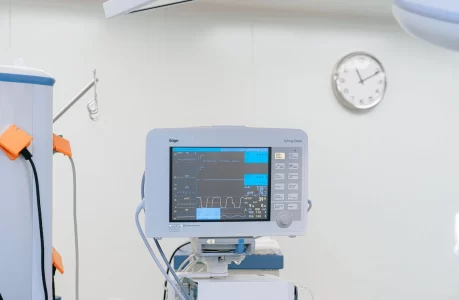Transforming Lives: Innovative Disability Accommodations

Recently, the focus on accessibility has expanded beyond mere compliance with legal requirements. It has evolved into a movement that aims to foster inclusivity and provide equal opportunities for individuals with disabilities. Innovations are transforming the lives of people with disabilities by breaking down barriers and enabling them to lead more independent and fulfilling lives.
In Australia, legislation such as the Disability Discrimination Act 1992 protects individuals with disabilities from discrimination and requires businesses and service providers to make reasonable adjustments to accommodate their needs. By prioritizing disability accommodation, Sydney complies with legal requirements and upholds the fundamental principles of equal rights and non-discrimination. This article explores the remarkable ways cutting-edge disability accommodation in Sydney is pushing the boundaries of accessibility and enhancing the lives of individuals with disabilities.
Augmented Reality: Expanding Horizons For The Visually Impaired
The development of augmented reality (AR) as a potent tool for enhancing accessibility for individuals with visual impairments. Through specialized AR applications and devices, people with visual disabilities can experience a new level of independence. AR technology provides real-time audio descriptions of the surrounding environment, allowing users to navigate unfamiliar places, read signs, and recognize objects. By overlaying digital information in the real world, augmented reality opens up many possibilities for the visually impaired.
Exoskeletons: Empowering Mobility And Independence
Exoskeleton technology has made remarkable strides in recent years, revolutionizing mobility for individuals with mobility impairments. These wearable robotic devices provide support and assistance, allowing people with limited mobility to stand, walk, and even climb stairs. Exoskeletons are designed to adapt to the user’s movements, enhancing their independence and quality of life. With ongoing advancements, exoskeletons are becoming lighter, more comfortable, and more accessible to a broader range of individuals with mobility challenges.
Brain-Computer Interfaces: Unlocking Communication For Those With Severe Disabilities

For individuals with severe disabilities that affect their ability to communicate verbally, brain-computer interfaces (BCIs) offer new hope. BCIs enable direct communication between the brain and external devices, bypassing traditional methods of communication. By interpreting brain signals, these interfaces allow individuals to control computers, prosthetic limbs, and even robotic devices. This groundbreaking technology holds immense potential for transforming the lives of people with severe disabilities, giving them a voice and greater independence.
Assistive Robotics: Revolutionizing Daily Living Activities
Assistive robotics is a rapidly advancing field that focuses on developing robots capable of assisting individuals with disabilities in their daily activities. These robots can perform various tasks, such as helping with household chores, providing mobility support, and offering companionship. By augmenting the abilities of individuals with disabilities, assistive robots enhance their quality of life and reduce dependence on human caregivers.
Smart Home Technology: Enabling Independent Living
Smart home technology has revolutionized how to interact with living spaces and holds immense potential for individuals with disabilities. By integrating various devices and appliances, smart homes can be tailored to accommodate the specific needs of individuals with disabilities. Voice-controlled assistants, automated lighting and temperature control, and remote access to appliances empower people with disabilities to live more independently and comfortably.
Internet Of Things (IoT): Creating A Connected And Accessible World
The Internet of Things (IoT) has the power to transform accessibility by connecting everyday objects to the Internet and enabling seamless communication between devices. For individuals with disabilities, IoT offers immense possibilities. From smart wearables that monitor health conditions to assistive devices that can be controlled remotely, IoT technology enhances accessibility in various aspects of life, making daily routines more manageable and fostering independence.
Cutting-edge disability accommodation in Sydney is transforming the lives of individuals with disabilities, going beyond traditional notions of accessibility. These innovations, from augmented reality to wearable devices, push the boundaries of what was once thought possible.
Read Also:

























Leave A Reply